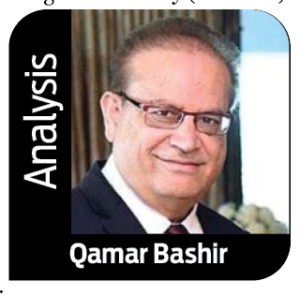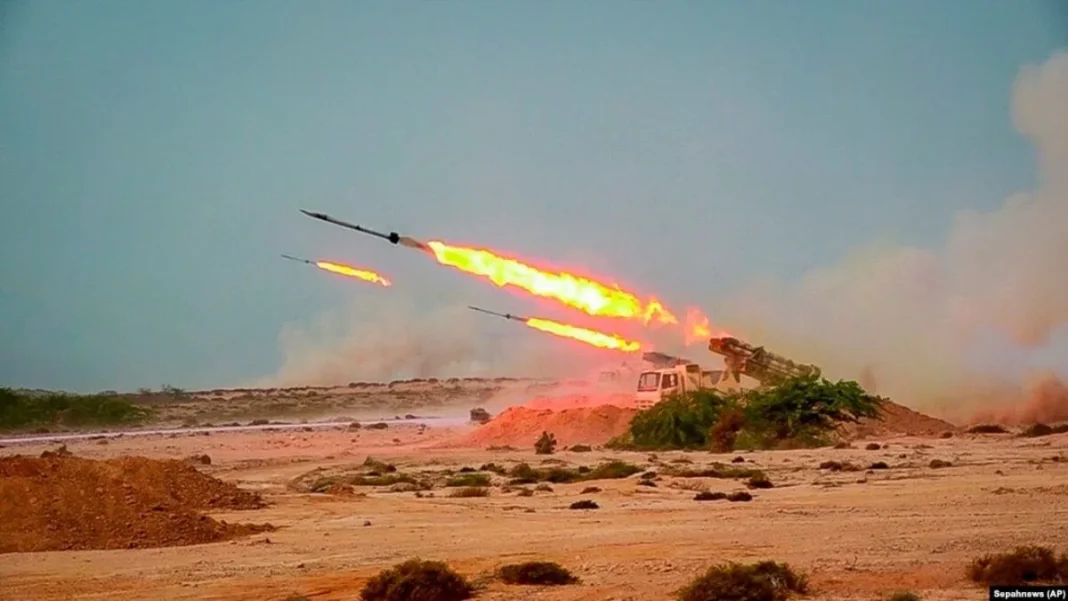
In a surprising and highly unusual move, Iran conducted a series of aggressive actions by launching six bomb-carrying drones and rockets into Pakistan’s Balochistan province on Tuesday night (16.01.2024). The targets of these attacks, according to Iran, were homes purportedly housing the families of Jaish al-Adl fighters. Shockingly, the assault resulted in the tragic death of two children, with two women and a teenage girl sustaining injuries. The nature of these strikes raises questions about their proportionality and justification, as they were seemingly directed at non-combatants.
These unprovoked attacks within Pakistan’s territory were ostensibly aimed at bases affiliated with Jaish al-Adl, a militant group seeking an independent Baluchistan that has expanded its presence across Afghanistan, Iran, and Pakistan.
What makes these assaults particularly egregious is that they occurred despite existing communication channels between Iran and Pakistan, established for the purpose of enforcing border control, exchanging information and intelligence, and fostering cross-country cooperation in addressing terrorist movements and plans. The blatant disregard for diplomatic norms and cooperative mechanisms underscores the severity and unpredictability of Iran’s actions, adding a layer of complexity to the already sensitive regional dynamics.
Iran’s recent attacks on Pakistan flagrantly violated the longstanding friendly, brotherly, and fraternal ties between the two nations, which share common borders, religion, customs, and a shared history.
The reckless response is believed to be fueled by Iran’s anger over the twin bombings in the city of Kerman on January 5, 2024, where 89 people lost their lives and 280 were wounded during a memorial for the top Iranian General Qassem Soleimani. Iranian President Ebrahim Raisi had vowed retaliation, stating that Iranian forces would choose the place and time for action.
Pakistan wasn’t the sole target of Iran’s ire; a day before the attacks in Balochistan, Iran launched ballistic missiles in Iraq’s Kurdish region, targeting sites allegedly linked to ISIS. Simultaneously, Iran hit locations in northern Syria, claiming it was defending its security and countering terrorism. These actions reflect Iran’s broader strategy of responding aggressively to perceived threats, marking a significant escalation in the region and complicating diplomatic relations.
The cross-border attack by Iran on Jaish-e-Adl hideouts inside Pakistan, given the considerable distance from Kerman, seems illogical and disconnected from the alleged retaliation motive for the bombings in Iran. This raises questions about the justification and strategic sense of such a move, especially when it risks straining historic religious and fraternal relations with Pakistan.
Iran’s simultaneous targeting of both ISIS and Jaish-al-Adl reflects a broader belief that these groups are tools manipulated by the United States, Saudi Arabia, and Israel. The intention is perceived as instigating hatred between the Sunni and Shia sects within Islam, aiming to undermine Iran’s religious revolution, threaten its social and religious fabric, and weaken the state of Iran. This aligns with Iran’s perspective that it stands as a bulwark against the hegemonic designs of the USA, the West, and Israel in the region.
Iran holds the belief that the Islamic State of Iraq and Syria (ISIS), also known as Daesh, emerged in the early 2000s and gained prominence around 2014 as a Sunni extremist organization. According to Iran, it is considered an offshoot of Al-Qaeda and was created by the USA, the West, and Israel. The core ideological motivation of ISIS, as perceived by Iran, revolves around establishing a caliphate governed by its interpretation of Islamic law, predominantly based on Sunni thoughts and practices.
Iran emphasizes that being a predominantly Shia Muslim country, it is viewed as a direct adversary by ISIS due to the profound ideological differences between Sunni and Shia Islam. This animosity is deeply rooted in sectarian tensions, with ISIS considering Shia-majority regions, including Iran, as opponents to its extremist Sunni ideology. Iran also points to complex geopolitical factors and power struggles in the Middle East as contributing dynamics that lead to ISIS’s attacks on Iran.
Iran asserts that Jaish al-Adl, a Sunni militant organization formed in 2012 in Iran’s Sistan and Baluchestan province after the dissolution of Jundallah, is supported and aided by the USA, the West, and Israel, according to Iran’s perspective. Comprising ethnic Baloch Sunni militants, Jaish al-Adl’s activities are driven by grievances related to ethnic, religious, and economic disparities. The group claims to champion the rights of Sunni Muslims in Iran, particularly in Baloch-majority areas, aiming for autonomy and addressing perceived discrimination by the Iranian government.
Iran argues that its military actions inside Pakistan’s Balochistan province were a necessary response to safeguard its sovereignty and citizens from perceived threats posed by Jaish al-Adl. They contend that the presence of Jaish al-Adl militants in the Iran-Pakistan border region posed a direct and imminent danger, justifying preemptive self-defense measures. Additionally, Iran frames these actions as part of a broader counterterrorism strategy, emphasizing the need to address the militant threat originating from Pakistani territory for the sake of regional security.
Pakistan contends that Iran’s incursion into its territory were unacceptable, violates the principle of sovereignty and constitutes a breach of international law. Pakistan argues that diplomatic channels and engagement should have been pursued by Iran to address concerns related to Jaish al-Adl. The unilateral military actions are viewed by Pakistan as not only risking escalation but also undermining potential diplomatic resolutions. Pakistan emphasizes that such actions have the potential to harm regional stability, as they could strain diplomatic relations, involve other regional actors, and exacerbate tensions in an already volatile area.
As a victim of external unprovoked missile and drone attacks, Pakistan retains the right to consider military, economic, and diplomatic responses. Each option comes with its own set of merits and demerits.
Pakistan, viewing the breach as a grave violation of sovereignty, is likely to respond by fortifying border defenses and deploying additional troops. While the immediate focus would be on averting a full-fledged military conflict through engagement with Iranian forces, the regional military dynamics may shift based on responses from neighboring countries. Afghanistan and India expressing concerns about the potential escalation adds another layer of complexity to the situation.
Heightened tensions between Iran and Pakistan hold significant economic ramifications, impacting trade and investment. The cautious approach of investors may lead to a decline in foreign direct investment for both countries. The economic disruption could extend beyond their borders, affecting global energy markets given the significance of both nations in the energy sector. As the possibility of economic sanctions looms, the need for stability and resolution becomes increasingly urgent.
On the diplomatic front, international condemnation of Iran’s actions and calls for an immediate ceasefire would be anticipated. To de-escalate tensions, diplomatic initiatives, possibly through the United Nations and regional organizations, become paramount. Seeking mediation from neutral third parties could facilitate dialogue and pave the way for a peaceful resolution. Pakistan’s active engagement with the global community and involvement in international forums would be crucial to garner diplomatic support. The potential economic and diplomatic fallout underscores the urgency for constructive dialogue and international cooperation to address the crisis.
An ideal response from Pakistan would center on diplomatic engagement, international mediation, economic stabilization measures, and military restraint. Prioritizing dialogue through diplomatic channels and seeking mediation from neutral parties, Pakistan can underscore its commitment to a peaceful resolution. Stabilizing the economy and reassuring investors through collaborative efforts with international financial institutions will be crucial. Simultaneously, maintaining a robust defense posture while exercising restraint is imperative for regional stability. Actively engaging with the global community to garner diplomatic support and presenting evidence of Iran’s violation of sovereignty will contribute to building a case for international understanding and intervention.
The writer is former Press Secretary to the President,Former Press Minister at Embassy of Pakistan to France and Former MD, SRBC


